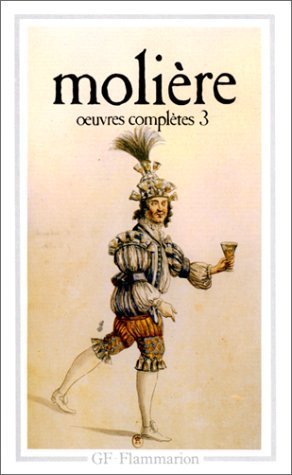
Part of Series
Alternate cover edition of ASIN 2080700545 On connaît Molière, et on croit le connaître bien. Chaque génération l’a lu à sa manière. Des traditions éditoriales, et des légendes biographiques, se sont fait jour. On publie généralement ses œuvres dans l’ordre selon lequel elles furent créées, alors que pour plusieurs pièces, et notamment pour Tartuffe, on ne possède pas le texte de la création. Il aurait écrit sur la médecine parce qu’il était malade ; sur le mariage et la jalousie parce que sa femme aurait été légère… L’avantage, avec les grandes œuvres, c’est qu’elles redeviennent neuves dès qu’on veut bien porter sur elles un regard différent. Ainsi, ce n’est pas dans de prétendues difficultés conjugales qu’on cherchera la source de l’intérêt de Molière pour le statut des femmes, mais bien plutôt dans un ensemble de valeurs partagées par toute la société mondaine de son temps. De même, Molière ne fut pas un malade qui raillait ses médecins, mais un auteur qui, après l’interdiction du Tartuffe, utilisa la médecine comme allégorie de la religion, sujet désormais prohibé. De même encore, on ne peut mettre sur le même plan les pièces qu’il publia lui-même – à partir des Précieuses Ridicules –, celles que firent imprimer ses héritiers et celles qui restèrent inédites jusqu’au XIXᵉ. Ce volume contient : Le Misanthrope - Le Médecin malgré lui - Mélicerte - Pastorale comique - Le Sicilien - Amphitryon - George Dandin - L’Avare - Monsieur de Pourceaugnac.
Author

Jean-Baptiste Poquelin, also known by his stage name, Molière, was a French playwright and actor who is considered one of the greatest masters of comedy in Western literature. Among Molière's best-known dramas are Le Misanthrope, (The Misanthrope), L'Ecole des femmes (The School for Wives), Tartuffe ou l'Imposteur, (Tartuffe or the Hypocrite), L'Avare ou l'École du mensonge (The Miser), Le Malade imaginaire (The Imaginary Invalid), and Le Bourgeois Gentilhomme (The Bourgeois Gentleman). From a prosperous family and having studied at the Jesuit Clermont College (now Lycée Louis-le-Grand), Molière was well suited to begin a life in the theatre. Thirteen years as an itinerant actor helped to polish his comic abilities while he also began writing, combining Commedia dell'Arte elements with the more refined French comedy. Through the patronage of a few aristocrats including the brother of Louis XIV, Molière procured a command performance before the King at the Louvre. Performing a classic play by Pierre Corneille and a farce of his own, Le Docteur amoureux (The Doctor in Love), Molière was granted the use of Salle du Petit-Bourbon at the Louvre, a spacious room appointed for theatrical performances. Later, Molière was granted the use of the Palais-Royal. In both locations he found success among the Parisians with plays such as Les Précieuses ridicules (The Affected Ladies), L'École des maris (The School for Husbands) and L'École des femmes (The School for Wives). This royal favour brought a royal pension to his troupe and the title "Troupe du Roi" (The King's Troupe). Molière continued as the official author of court entertainments. Though he received the adulation of the court and Parisians, Molière's satires attracted criticisms from moralists and the Church. Tartuffe ou l'Imposteur (Tartuffe or the Hypocrite) and its attack on religious hypocrisy roundly received condemnations from the Church while Don Juan was banned from performance. Molière's hard work in so many theatrical capacities began to take its toll on his health and, by 1667, he was forced to take a break from the stage. In 1673, during a production of his final play, Le Malade imaginaire (The Imaginary Invalid), Molière, who suffered from pulmonary tuberculosis, was seized by a coughing fit and a haemorrhage while playing the hypochondriac Argan. He finished the performance but collapsed again soon after, and died a few hours later. In his time in Paris, Molière had completely reformed French comedy.
